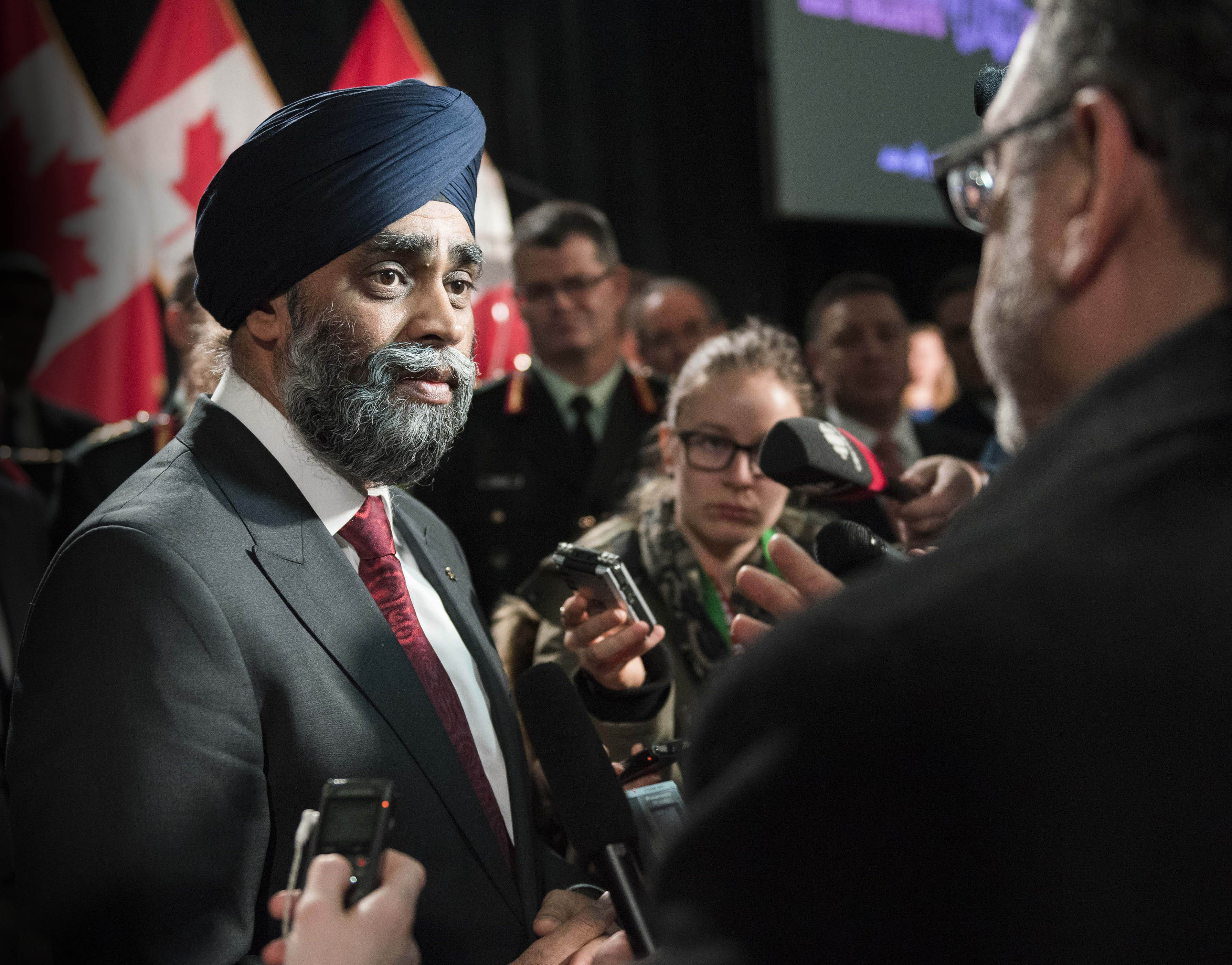
Sajjan apologized quickly and unequivocally for calling himself the “architect” of Operation Medusa, a Canadian-led offensive in September 2006. In a Facebook post, he clearly laid the credit where it was due.
“While I am proud of the role I played during my deployments to Afghanistan, my comments were in no way intended to diminish the roles of my former superiors and fellow soldiers,” he wrote. “To them I offer my sincere apologies.
“What I should have said is that our military successes are the result of the leadership, service and sacrifice of the many dedicated women and men in the Canadian Forces. Operation Medusa was successful because of leadership of [Brigadier-General David] Fraser and the extraordinary team with whom I had the honour of serving.”
He apologized again when the House of Commons reconvened on May 1, and Prime Minister Justin Trudeau said, “He acknowledged his responsibility and apologized for it; that’s what Canadians expect when one makes a mistake.… He has my full confidence.”
Despite this, opposition MPs said Sajjan should lose his job. Conservative defence critic James Bezan told the House of Commons an apology “does not repair the damage done.” Interim Conservative leader Rona Ambrose called on the minister to resign or be fired.
“In military circles, they call it ‘stolen valour,’” said Ambrose. “He has dishonoured his role. No one is questioning his bravery as a soldier but he himself has put himself in this situation by making up a story about his own service record. Why, I don’t know, but he lied.”
NDP leader Tom Mulcair accused Sajjan of telling “a whopper” and said that simply saying sorry isn’t enough: “That is not something you apologize for, it’s something that you have to step down for.”

It is a stretch to say Sajjan lied, much less told a whopper. In fact, he stole no one’s valour. What he did was break an unwritten code of military service under which soldiers do not boast of or elevate their exploits, and certainly do not depict them as any greater than those of their comrades-in-arms.
He appears to have overstated his role in what was widely considered a successful operation in which 31 coalition soldiers, including 12 Canadians, died, and more than 1,500 Taliban were believed killed or captured. But not by much.
Sajjan’s part in Medusa was significant, if not critical. Brig.-Gen. Fraser said as much in a commendation letter he wrote to Sajjan’s boss at the Vancouver Police Department on Sept. 16, 2006.
Sajjan was a police constable with extensive experience and success as an undercover narcotics officer. He was given the rank of major and loaned to the Canadian Forces in Afghanistan, where he served first as liaison officer to the Afghan National Police, then promoted to special intelligence officer because of his ability to understand and exploit criminal networks.
Fraser called him one of the most remarkable people he’d ever worked with, providing timely and accurate intelligence and fusing broad sources of information into an analysis “so compelling that it drove a number of large scale theatre-resourced efforts, including OPERATION MEDUSA.”
“Not only did he display a rare high level of intellect and experience in his analysis, he also demonstrated remarkable personal courage in his collection efforts, often working in the face of the enemy to collect data and confirm his suspicions, and placing himself almost daily in situations of grave personal risk,” wrote Fraser.
Sajjan’s intelligence harvest and his ability to interpret it were critical to the mission’s overall success, the general wrote.
Chris Vernon, a retired British colonel who was Fraser’s chief of staff at the time, said he has “no axe to grind” over what amounted to a ‘the’ instead of an ‘an’ in front of the word ‘architect’ in Sajjan’s speech. “Without Major Sajjan’s input as a critical player, a major player—a pivotal player, I’d say—Medusa wouldn’t have happened,” Vernon told “The Morning Show” on the omny.fm podcast.
The calls for Sajjan’s dismissal ring hollow and smack of political opportunism in light of the realities.
Advertisement












